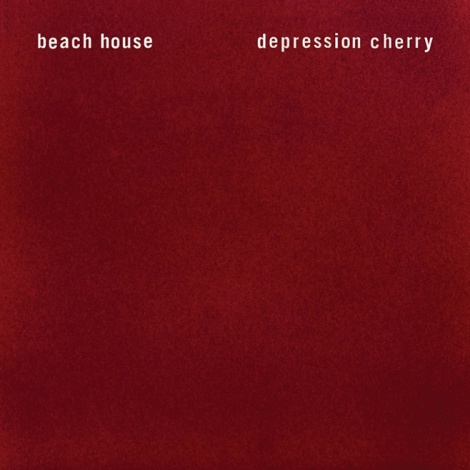
Sometimes, change isn’t what we look for in life or in music. The world moves at a steady but always forward pace; there’s no time to contemplate each step. Our bodies chug on forward, even if it is agonizingly slow or painful. But, in doing so, we forget to look back at the footprints we leave behind. More importantly, we forget how we got to where we are.
In the indie-sphere, Beach House needs no retrospective. While Teen Dream certainly thrust the duo into indie fandom, Beach House has been ever-present since 2006 when they released their self-titled debut. Since then, they’ve had a steady amount of releases, culminating with their latest effort Bloom. Victoria Legrand and Alex Scally seemed to have no reason to slow down, going at a pace of one album per two years. It wasn’t surprising to see others expecting an album last year, but when we pinned the new calendar, nothing came to be. Perhaps they were burnt out after their Bloom tour. Perhaps they were looking to other musical endeavors. After all, the unofficial inventors of ‘dream pop’ might be tired of the genre they so perfectly and aptly defined.
But here we are again, just a couple months before the end of the year. When Depression Cherry was announced, the name certainly stirred some interesting reactions and preliminary conversation. Legrand and Scally, along with the announcement, called the album a way to “…continue to let ourselves evolve while fully ignoring the commercial context in which we exist.” Of course, when artists announce or discuss artistic direction or approach, most music news consumers always take it with a grain of salt, as expectations and personal desires largely get in the way of perception. Yet, if this review could be condensed into one sentence, Legrand and Scally probably most succinctly described it.
Depression Cherry, upon first listen, is an immediate disconnect in approach from their last albums, Teen Dream and Bloom, especially the latter. While Bloom features an expansive palette of reverb-heavy guitar and drums in a cathedral-like soundscape, Depression Cherry condenses and compartmentalizes the echoes, honing a more central and close-quarters atmosphere. Legrand’s vocals still has its soothing, mysterious qualities but far more subdued in loudness and vocal range. To match this, Scally similarly turns down the reverb and volume to the backing instrumentals. From here, two distinct perspectives can be ascertained.
From the perspective of a recent fan of Beach House, it might be a bit off-putting, especially those who are coming from their last two albums. This makes Depression Cherry far more difficult to process, especially if you include the subject matter. Beach House is known for the way they look at love from a distance, like floating above from space, looking into the lives below. Depression Cherry turns this relationship into one that’s far more close contact. Instead of an alien, one now becomes a wallflower, privy to not only the general emotions but also more nuanced and detailed. Unlike Bloom, Depression Cherry aims to speak more on specifics than in generalities. ‘Beyond Love’, for example, is an intimate song about a former lover that’s more literal and interpersonal than before, placing the unknown man and narrator directly in front of each other. ’PPP’ seems to talk about the potential perils of marriage or the doubts of love between two people. This sort of directness and specificity slots marvelously well with the change in instrumentation.
From the perspective of a long-time fan of Beach House, the album is almost too perfect of a ‘return to roots.’ While the lyrics have certainly shifted away from long-form metaphors woven in dream-like fashion, the instrumentals are reminiscent of their first two albums, Beach House and Devotion. Sure, the composition might be more complex in their latest album, but the essential elements are there. The instrumentation on ‘Blackbird’ and ‘Beyond Love’ remind us why we fell in love with Beach House in the first place; the steady but solemn drum beat with the drone of a warm, fuzzy synth while Legrand entices us with her airy, wispy vocals is a welcome change from the dramatic.
It seems from both perspectives; it’s easy to conclude that there is something for everyone. Unfortunately, Depression Cherry offers nothing more or substantial from this stand. Beach House fans new and old will continue to enjoy the steady releases they have put out, but from a critic’s point of view, the album lies in between their two distinct eras in their musical history. While Depression Cherry doesn’t suffer from bad tracks, misdirection, or an abandonment of style, it is also one of their least ambitious records.
VERDICT:
8.0 / 10.0
Beach House continues to dominate the ‘dream pop’ genre, paving the way for others to take bits and pieces from them or outright try to emulate. And while Depression Cherry is a solid album from start to finish, the touch of magic seems absent. It would be unethical of me to give an album a low score for that only reason, but my score does not reflect the struggle that I had wanting just a bit more from this album.